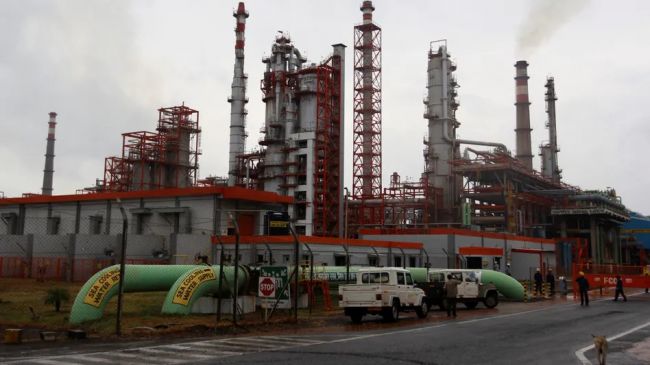
Germany Looks To Nationalise Rosneft's German Refinery Assets
By Rhod Mackenzie
The German authorities are discussing the nationalisation of Rosneft's oil refining assets. Rosneft's largest asset in the country, the Schwedt refinery, which relied on Russian supplies via the Druzhba oil pipeline, has experienced loading difficulties after Germany rejected oil from the Russian Federation.
The German government is considering the option of nationalising Rosneft's assets in the country, local publication Handelsblatt reported, citing sources. Hearings on the nationalisation of Rosneft's assets in Germany were held on 5 February and were attended by a representative of the Russian oil company, Handelsblatt notes. A final decision on the issue has not yet been made. Kommersant sent an inquiry to Rosneft.
The decision on nationalisation is made by the Ministry of Economy, taking into account the opinion of the Ministry of Finance, explains Nikita Tyurin, senior lawyer at the Delcredere Bar Association. Before a decision is made, the owner is given the opportunity to state his position. If the decision is made, it can be appealed in court. If it comes into force, the owner will have the right to claim compensation equal to the market value of the property.
AB NSP lawyer Gleb Boyko adds that the expropriation procedure is laid down in the law "On Energy Security".
Expropriation is allowed to ensure the security of energy supply. In this case, its necessity is explained by the fact that Rosneft is under EU sanctions.
Rosneft owns shares in the Bayernoil refinery (Voburg on the Danube) - 28.57%, MiRO (Karlsruhe) - up to 24%, the largest asset is a controlling stake in PCK (Schwedt) - 54.17%. In September 2022, the German government ordered the transfer of these assets into a state trust, arguing that they posed a threat to the safety of refinery operations. Rosneft tried to challenge this decision in court, but to no avail.
In response to the actions of the German authorities, the Russian Federation placed the Unipro power plant, which is owned by the German company Uniper, under temporary external management. Unipro's management bodies included managers from Rosneft (see "Kommersant" of 26 April 20/23). A similar measure was taken in relation to the Russian assets of Finland's Fortum, which was Uniper's majority shareholder until December 2022.
Oil supplies from Rosneft to the Schwedt plant were stopped after the EU imposed an embargo on Russian oil in December 2022. The German authorities agreed to supply the Schwedt refinery with 100,000 tonnes of Kazakh oil per month via Druzhba. This is not enough to fully load the refinery, which has a primary processing capacity of 11.6 million tonnes per year (more than 230,000 b/d). To solve the loading problems, the German authorities have decided to expand the Rostock-Schwedt oil pipeline (capacity 110,000 b/d), but this may take years. In addition, the refinery receives oil from the port of Gdansk, but these volumes are insufficient. At the end of December, Reuters reported that the issue of selling Rosneft's German assets was being discussed, with the Polish group Orlen expressing interest.
Throughout 2023, the Schwedt refinery was kept operational thanks to supplies of 994,000 tonnes from Kazakhstan, notes Victor Katona of Kpler. The Polish port of Gdansk cannot serve the Polish refineries, Total's Leuna refinery and the Schwedt refinery at the same time, so it will have to decide which of these plants will be loaded first. If the only source of supply is the pipeline from Rostock, the Schwedt refinery could be closed, as it is unprofitable at a load factor of less than 60-65%, the analyst points out.
